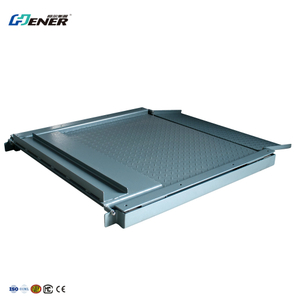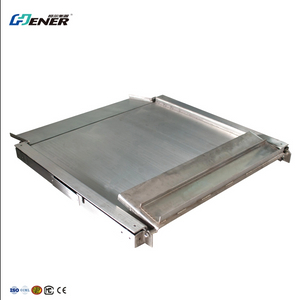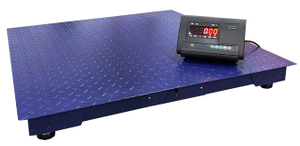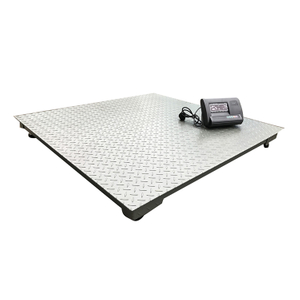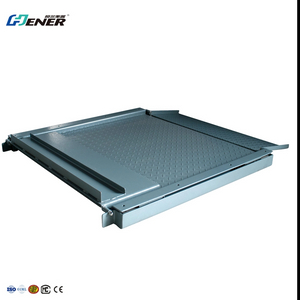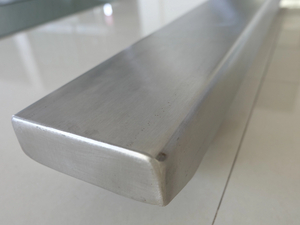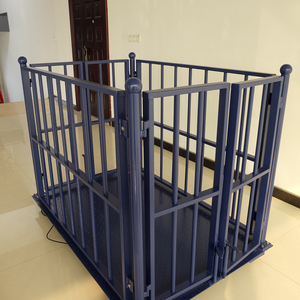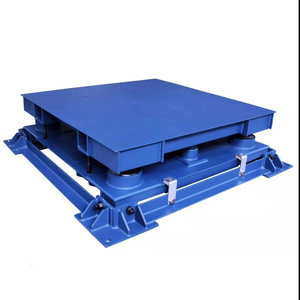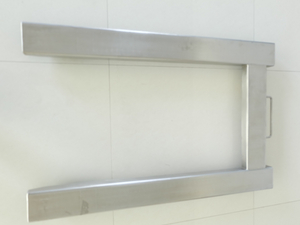
Weighing scales are critical tools in the pharmaceutical industry, ensuring precision, quality, and compliance throughout various stages of drug development, production, and distribution. Accurate measurement is essential to maintaining the integrity of pharmaceutical products, meeting regulatory standards, and safeguarding patient safety. This comprehensive exploration delves into the diverse applications of weighing scales in pharmaceuticals and highlights their significance in ensuring operational excellence and product quality.
Precision in Formulation and Compounding
Active Pharmaceutical Ingredient (API) Measurement
In the pharmaceutical industry, the accuracy of active pharmaceutical ingredient (API) measurements is crucial for ensuring the efficacy and safety of medications. Weighing scales are used to measure precise quantities of APIs during the formulation process. Any deviation in the weight of APIs can lead to incorrect dosages, potentially causing adverse effects or reducing the therapeutic effectiveness of the drug.
Advanced analytical balances with high precision and sensitivity are commonly used in pharmaceutical laboratories to measure APIs. These scales can detect minute weight differences, ensuring that each batch of medication contains the exact amount of active ingredient specified in the formulation. This precision is vital for maintaining the consistency and reliability of pharmaceutical products.
Excipients and Additives
In addition to APIs, pharmaceutical formulations include various excipients and additives that enhance the stability, solubility, and bioavailability of the active ingredients. Weighing scales are used to measure these components accurately, ensuring that they are added in the correct proportions. This precision is essential for achieving the desired properties of the final product and maintaining batch-to-batch consistency.
For example, in tablet production, accurate measurement of binders, fillers, and disintegrants ensures that the tablets have the required hardness, dissolution rate, and bioavailability. In liquid formulations, precise measurement of solvents, preservatives, and stabilizers is critical for maintaining the stability and shelf life of the product.
Quality Control and Assurance
In-Process Control
Weighing scales play a vital role in quality control and assurance processes within the pharmaceutical industry. In-process control involves monitoring the weight of products at various stages of production to ensure they meet specified standards. For instance, in the production of tablets and capsules, scales are used to measure the weight of individual units to ensure uniformity and compliance with pharmacopeial standards.
Accurate weight measurements help identify deviations from the specified weight range, allowing for timely corrective actions to be taken. This ensures that the final product meets quality standards and regulatory requirements. In-process control also helps prevent issues such as underdosing or overdosing, which could compromise patient safety.
Laboratory Analysis
In pharmaceutical laboratories, weighing scales are essential for various analytical procedures, including testing the purity, potency, and stability of drug products. High-precision balances are used to measure small quantities of substances for analytical testing, ensuring accurate and reliable results. For example, analytical balances are used in titration, chromatography, and spectroscopy to measure sample weights with high accuracy.
Weighing scales also support the analysis of raw materials, intermediates, and finished products, providing critical data for quality assurance. This data helps ensure that products meet regulatory specifications and quality standards, supporting the overall integrity of the pharmaceutical supply chain.
Compliance with Regulatory Standards
Good Manufacturing Practices (GMP)
Compliance with Good Manufacturing Practices (GMP) is a fundamental requirement in the pharmaceutical industry. GMP guidelines set strict standards for the manufacturing, processing, and packaging of pharmaceutical products to ensure their quality, safety, and efficacy. Weighing scales are integral to GMP compliance, providing accurate measurements that support various aspects of the manufacturing process.
GMP guidelines require that weighing equipment be calibrated and maintained regularly to ensure accuracy and reliability. This includes performing routine calibration checks, documenting calibration records, and conducting preventive maintenance. Accurate weighing data is essential for maintaining compliance with GMP standards and avoiding regulatory violations.
Documentation and Traceability
Weighing scales play a critical role in documentation and traceability within the pharmaceutical industry. Accurate weight measurements are essential for maintaining detailed records of raw materials, intermediates, and finished products. These records support traceability, allowing companies to track the movement of materials through the supply chain and identify the source of any issues or recalls.
Traceability is particularly important for ensuring product safety and meeting regulatory requirements. By providing accurate weight data, weighing scales support comprehensive documentation and record-keeping, helping companies maintain compliance with regulatory standards and facilitating audits and inspections.
Optimization of Production Processes
Batch Production
In batch production, weighing scales are used to measure and mix large quantities of ingredients accurately. This ensures that each batch is consistent with the previous ones, maintaining uniformity in product quality. Accurate measurement of raw materials and intermediates helps optimize the production process, reducing waste and improving efficiency.
Automated weighing systems are often integrated into production lines to enhance accuracy and productivity. These systems can automatically measure and dispense ingredients, reducing the risk of human error and increasing overall efficiency. By ensuring precise measurement and consistent mixing, weighing scales support the optimization of batch production processes.
Continuous Manufacturing
Continuous manufacturing is an emerging trend in the pharmaceutical industry that offers several advantages over traditional batch production. In continuous manufacturing, raw materials are fed into the production process continuously, and the final product is produced in a constant flow. Weighing scales play a crucial role in this process by providing real-time measurements of raw materials and intermediates.
Accurate weight measurements ensure that the continuous manufacturing process remains stable and consistent, producing high-quality products with minimal variability. Continuous monitoring of weights also helps detect any deviations from the specified parameters, allowing for immediate corrective actions to be taken.
Ensuring Patient Safety
Accurate Dosage
Ensuring accurate dosage is critical for patient safety in the pharmaceutical industry. Weighing scales are used to measure precise quantities of active ingredients and excipients, ensuring that each dosage form contains the correct amount of medication. This precision is essential for achieving the desired therapeutic effect and preventing adverse reactions.
For example, in the production of injectable drugs, accurate measurement of active ingredients and diluents ensures that each vial contains the correct dosage. In the production of oral solid dosage forms, such as tablets and capsules, precise measurement of powders and granules ensures uniformity and consistency in the final product.
Preventing Contamination
Weighing scales also play a role in preventing contamination during the production process. High-precision balances are used in controlled environments, such as cleanrooms and laboratories, to measure small quantities of highly potent or hazardous substances. These scales are designed to minimize the risk of cross-contamination, ensuring the safety and integrity of the final product.
Regular cleaning and maintenance of weighing equipment are essential for preventing contamination. GMP guidelines require that weighing scales be cleaned and sanitized regularly to prevent the buildup of residues and contaminants. By maintaining clean and accurate weighing equipment, pharmaceutical companies can ensure the safety and quality of their products.
Supporting Research and Development
Drug Development
Weighing scales are essential tools in the research and development (R&D) of new pharmaceutical products. During the drug development process, accurate measurement of active ingredients and excipients is critical for formulating and testing new drug candidates. Weighing scales support various R&D activities, including formulation development, stability testing, and analytical testing.
In formulation development, weighing scales are used to measure precise quantities of ingredients for experimental formulations. This accuracy is essential for evaluating the performance and stability of new drug candidates. In stability testing, scales are used to measure sample weights before and after exposure to various conditions, providing data on the stability and shelf life of the product.
Clinical Trials
In clinical trials, weighing scales are used to measure and dispense accurate dosages of investigational drugs. This precision is essential for ensuring the safety and efficacy of the drugs being tested. Accurate weight measurements help ensure that trial participants receive the correct dosage, reducing the risk of adverse reactions and ensuring the validity of the trial results.
Weighing scales also support the documentation and traceability requirements of clinical trials. Accurate weight data is essential for maintaining detailed records of drug batches, dosages, and trial results. This information is critical for regulatory submissions and for ensuring compliance with Good Clinical Practice (GCP) guidelines.
English
العربية
Français
Русский
Español
Português
Deutsch
italiano
Nederlands
Tiếng Việt
ไทย
Polski
Türkçe
ភាសាខ្មែរ
Bahasa Melayu
Filipino
Bahasa Indonesia
Română
Čeština
Монгол
қазақ
Српски
हिन्दी
Slovenčina
Slovenščina
Norsk
Svenska
Ελληνικά
Suomi
Հայերեն
Latine
Dansk
Shqip
Hrvatski
Afrikaans
Gaeilge
Eesti keel
Oʻzbekcha
latviešu
Azərbaycan dili
Беларуская мова
Български
ქართული
guarani
Кыргызча
Lietuvių
Македонски
Malti
Soomaali
Тоҷикӣ
Türkmençe




